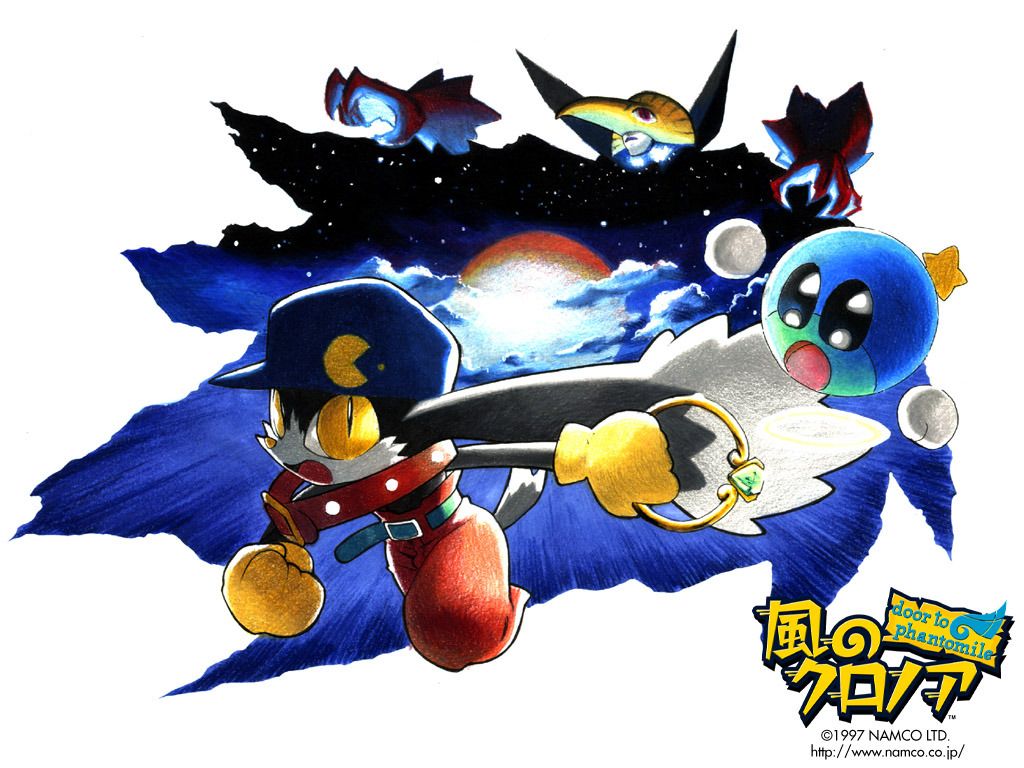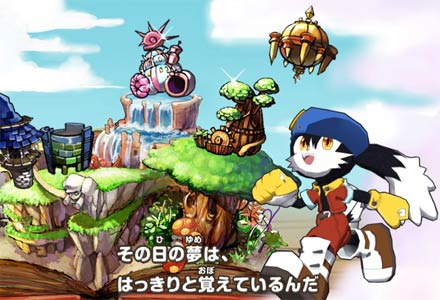A lot of people, especially in today's
gaming industry, usually rag on a game for being too simple, or too easy. Lots
of gamers and critics consider a game's simple mechanics as a major flaw, and
more complex gameplay ideas is what makes a game more engaging.
But does a game's complexity really make
a game "good"?
I disagree with the mindset of games
having complex mechanics and storytelling in order for the game to be at least
worthwhile. I don't need this thought provoking story to keep my interest. I don't
need deep gameplay in order to be immerse. If a game is fun and entertaining,
that's all I need. The rest is just icing on the cake for me.
The underappreciated Klonoa games from Namco are some of my
favorites. I consider these games to be the pinnacle of simple gaming
1. Platforming/Puzzling

Introducing the wind bullets! Klonoa's ring
shoots bullets of wind to snatch his enemies. Now the player can use his/her
foes to conquer the games' trials. After the player captures an enemy, one can
use the enemy as a double jump to reach areas that are from Klonoa's reach.
Combat is not a major component of the
games, but you can use your hostage to attack fiends just by simply tossing the
foe in your grasp. Heck, enemies can be used to solve certain puzzles in the
games. For example, a bomb enemy is required to clear pathways; Klonoa has to
get a hold of the living time bomb and hurry to the targeted obstacle before
the bomb explodes. Another enemy absorb into another enemy to form a ball of
light as a key. The doorway is color coded, so whatever enemy absorb into that
color is required to unlock the requested color.
Your enemies are essential to success.
Most platformers ask you to take out the pests that stand in your way, but
Klonoa wants you to use your
opponents as a way to tackle the game's many challenges. Complex? No. Fun?
Absolutely.

2. Storytelling
Most platform games lack a meaningful
story, just a plot to explain why the player has to conquer the challenges the
developers put them up against. Klonoa's storylines
do this, but Namco tries to put effort in a pretty straightforward story.
Klonoa is an adventurer, and the games want the player to feel like he/she is
on an adventure.
Games such as The Last of Us or any of the Bioshock
games want to player to take away something from the narrative. These games
feature deep themes to coincide with the characters and the universe they live
in. The Last of Us uses the concept
of survival to teach the players trust and sacrifice. Bioshock and its sequels use dystopian ideals to drive the actions
of the player and others around him/her by making moral choices to impact the
game's world. Heavy emphasis of characterization are handled here.
Klonoa, as simple as
the games' plots are, can have strong characterization but contain a fun and
light hearted approach. Characters such as Huepow from Door to Phantomile and Lolo from Lunatea's Veil are simple characters but carry strong emotion
within their personalities and growth. Writers don't need to shove in George
Orwell type writings to resonate between the characters and the players. What's
wrong with just having carefree enjoyment with a character's story? I don't
mind the attempt of telling something
insightful in a virtual world, but is it really essential for a game's story to
be entertaining? It's a video game; in the end of the day I just want to play
experience something fun. Again, themes and meanings are just extras for an
already good game.

3. Visual/Sound
I love video games that have style with
its art direction. Preferably I fathom games with unique art styles instead of
trying to be super realistic. Games are virtual,
meant to embrace a world that is not ours. Nothing wrong with realism, but I
like to admire creativity with a game's uniqueness. Many complain about modern
games obsessing over the nit and grit worlds of Gears of War, and want more substance with the game's visual
aesthetics.
However, some complain about games being
too cartoony or cute, reasons why games like
Wind Waker was mocked during its pre release. Even though Klonoa's world is
inhabited by cute anthropomorphic characters, the lush colors breathe life into
the world. The cute characters others
have edge to them. Klonoa's colorful world oozes with variety.

And the music.....good lord the music.
Soundtracks of TV shows, movies, and video games are meant to match the tone of
the material. Recent video games shoot for epic musical pieces to keep the
player entranced in the game world. I love me some blood pumping tunes don't get
me wrong, but what I absolutely love about Klonoa
is that the music the composers gift this light hearted world is calm and
collecting music. Tracks such as "Path of Goddess Clarie" and "Red
Heat Corona" are so soothing, they put a smile on my face.

http://www.youtube.com/watch?v=BML49q607U8
http://www.youtube.com/watch?v=E0-_U7OoxSM
4. Conclusion
Complexity can improve a game's quality,
no doubt about it. I just want to address that complex game ideas isn't needed
to qualify a game's worthiness. People play video games for enjoyment,
entertainment, fun! No matter how
complex a game is, if the game itself is not fun to play, then the game fails
to captivate players. The Klonoa franchise,
in my opinion, is a good example on how to show games can still be fun without
"deep" concepts.

No comments:
Post a Comment